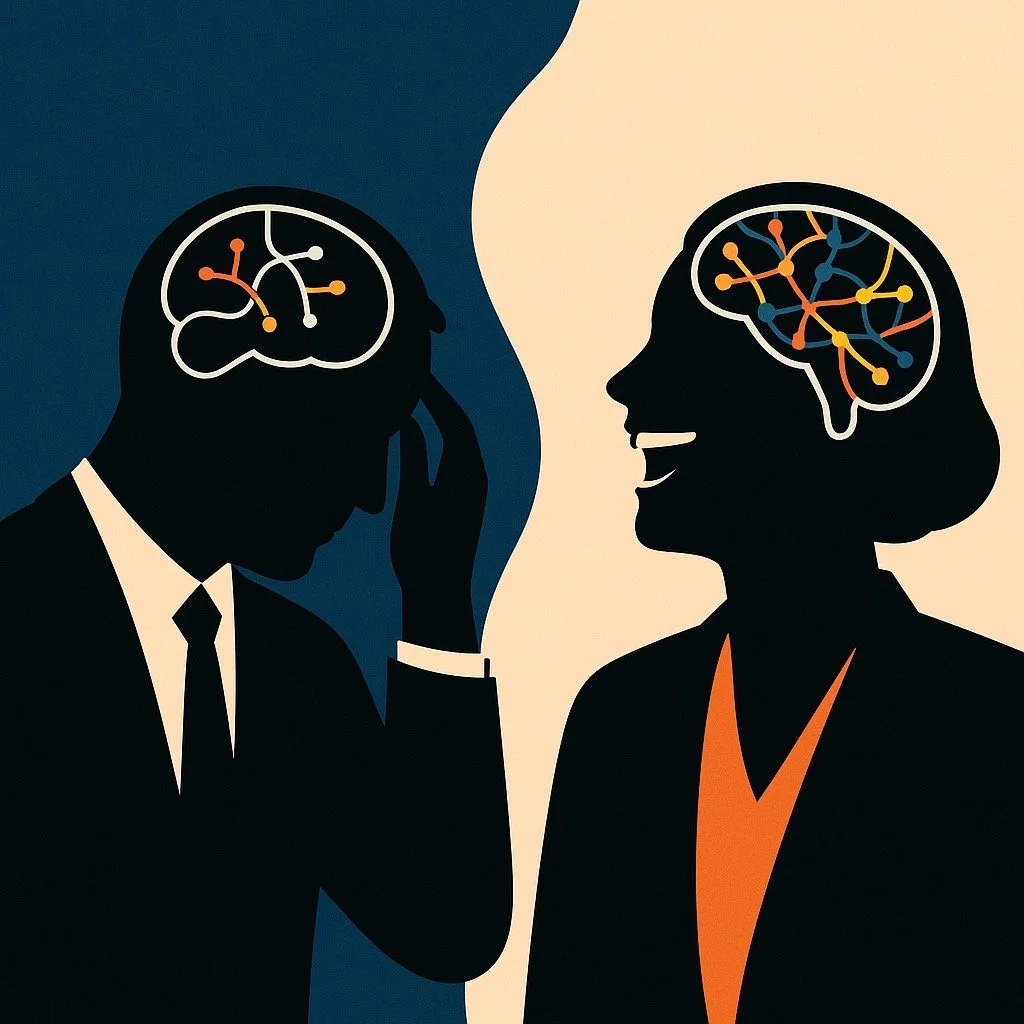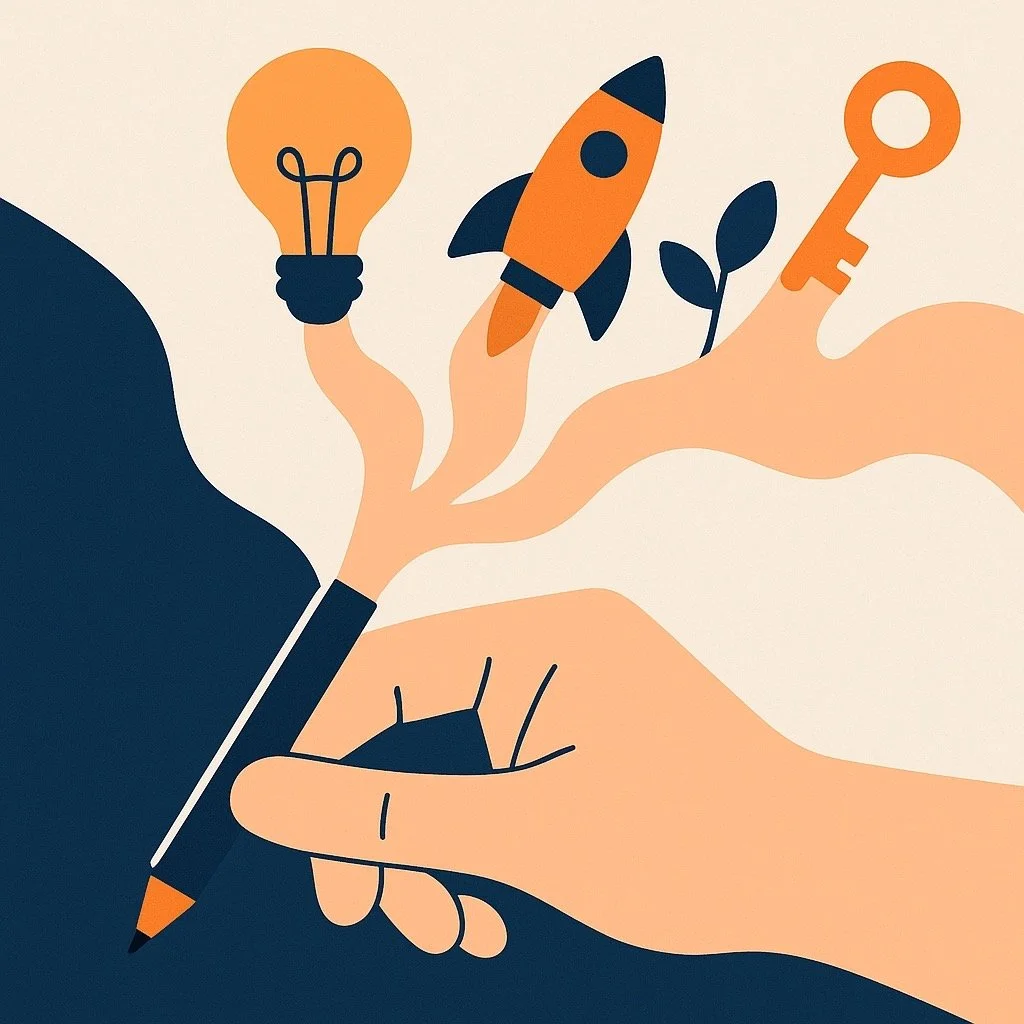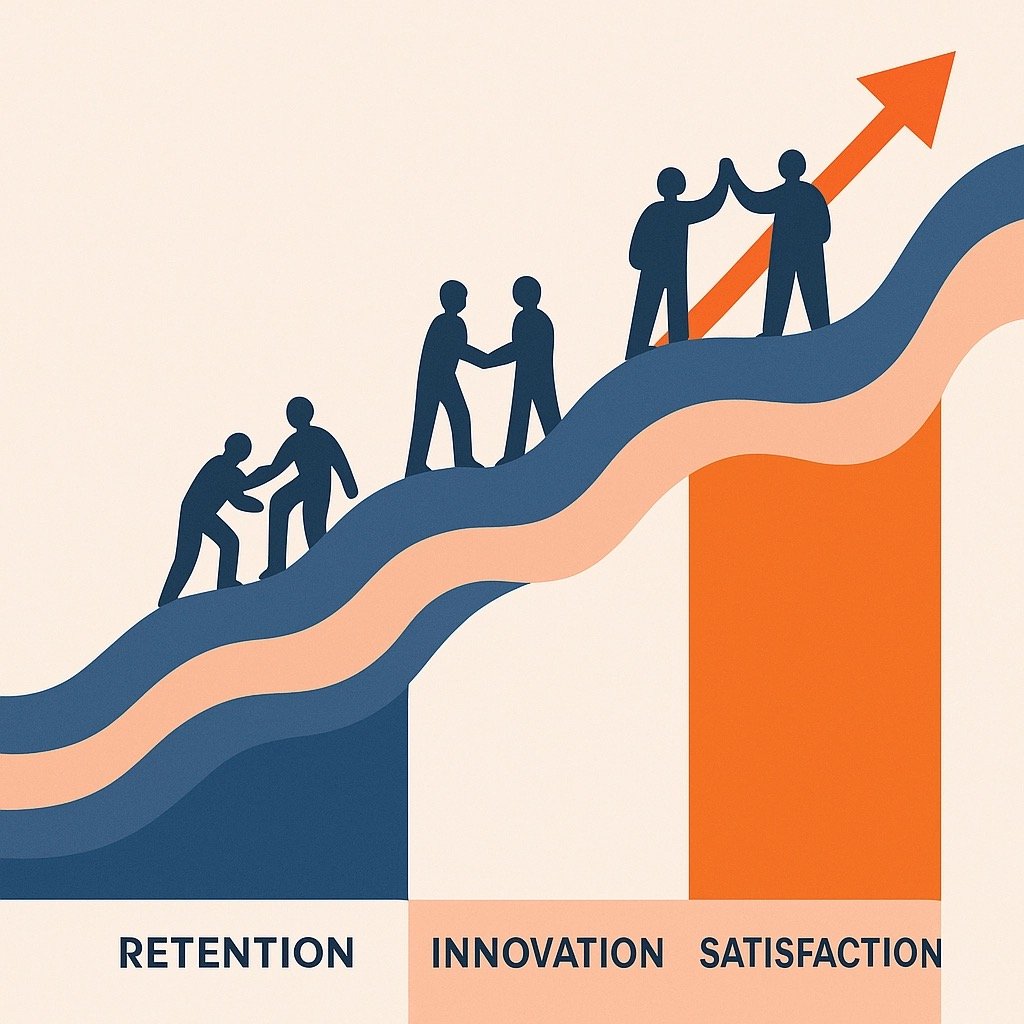The Serious Business of Fun: How Comedy Workshops Drive Real Workplace Results
Let's face it – corporate training has a reputation problem. When employees hear "mandatory workshop," most imagine stale PowerPoints, forced participation, and clock-watching until freedom. But what if I told you that some of the most effective professional development happening today involves games, laughter, and yes – even comedy?
At Chatterbox Workshops, we've seen firsthand how bringing elements of comedy and play into the workplace isn't just about having a good time (though that's definitely a perk). It's about delivering serious, measurable results that impact everything from communication to productivity to retention.
The Science Behind Workplace Fun
Before you dismiss this as fluffy feel-good stuff, let's talk science. When people laugh together, their brains release dopamine, endorphins, and oxytocin – literally creating chemical bonds between team members. Research shows workplaces that incorporate humor experience up to 12% increases in productivity and significantly higher engagement scores.
But why does this happen?
When we laugh, our stress hormones like cortisol decrease while our creative thinking pathways light up. We become more open to new ideas, more willing to take calculated risks, and more likely to form meaningful connections with colleagues. In short, comedy creates the precise mental state needed for innovation and collaboration.
Five Ways Comedy Workshops Transform Workplace Dynamics
1. Breaking Down Hierarchical Barriers
Traditional corporate structures can create invisible walls between leadership and teams. One of the most remarkable things about comedy workshops is their ability to temporarily suspend those hierarchies.
In an improv exercise, the CEO's idea gets the same "Yes, and..." treatment as the intern's suggestion. When the senior VP fumbles through a silly warm-up game just like everyone else, suddenly they're more approachable. These moments create psychological safety that continues long after the workshop ends.
As one participant noted after a recent Chatterbox session: "I finally pitched my project idea to our director because I saw her mess up and laugh at herself during the workshop. I realized she was actually open to hearing from anyone with a good idea."
2. Teaching Adaptive Communication Skills
In today's fast-changing workplace, rigid communication styles fail. Comedy training – especially improv – builds adaptive communication muscles through principles like:
Active listening: Improv requires complete presence and attention to what others are saying
Building on ideas: The "Yes, and..." principle teaches constructive development of concepts
Reading the room: Comedic timing is all about gauging audience reaction and adjusting
Thinking on your feet: Handling unexpected scenarios with confidence and creativity
These aren't just performance skills – they're exactly what's needed in client meetings, presentations, conflict resolution, and cross-departmental collaboration.
3. Fostering Creative Problem-Solving
When facing tough challenges, teams often fall into analytical paralysis or default thinking. Comedy workshops break these patterns by training brains to make unexpected connections and embrace unconventional approaches.
In one exercise we run called "That's Not a Pen," participants must quickly transform an ordinary object into something entirely different. We've watched as this simple game helps technical teams approach product problems from fresh angles and helps management teams identify new market opportunities.
4. Building Resilience Through Failure
Perhaps the most valuable lesson comedy teaches is that failure is not just okay – it's necessary. Stand-up comedians bomb. Improv scenes flop. And everyone learns to pick themselves up and try again.
In traditional workplaces, failure is often hidden, denied, or punished. But companies that outperform their competitors have learned that innovation requires risk, and risk means occasional failure.
Comedy workshops provide a safe space to practice failing, recovering, and iterating – all while the stakes are low and the environment is supportive. This builds resilience that transfers directly to how teams handle real-world setbacks.
5. Enhancing Emotional Intelligence
Working effectively with others requires understanding both your own emotional responses and those of your colleagues. Comedy training develops this awareness through:
Reading subtle social cues
Understanding timing and appropriate responses
Recognizing when something isn't landing as intended
Adapting messages for different audiences
Defusing tension with appropriate humor
Teams with high emotional intelligence resolve conflicts faster, collaborate more effectively, and create more inclusive environments – all critical factors in today's workplace.
From Workshop to Workplace: Real Results
The benefits of comedy-based training aren't just theoretical. Organizations implementing these approaches report concrete outcomes:
Reduced turnover: Teams that laugh together stay together, with some reporting up to 20% improvements in retention after implementing regular fun-based team building
Faster problem resolution: Groups trained in improv techniques resolve internal conflicts in approximately half the time compared to untrained teams
Improved customer satisfaction: Employees who can think on their feet and maintain positive energy even in difficult interactions earn higher customer ratings
More innovative solutions: Teams that practice creative thinking games regularly generate 37% more viable ideas during brainstorming sessions
As one HR director told us after implementing a six-month comedy training program: "We expected people might enjoy themselves. We didn't expect our customer complaint resolution time to drop by 40% or to see three new product ideas emerge directly from techniques learned in the workshops."
The Chatterbox Approach: Serious Fun for Serious Results
At Chatterbox Workshops, we're not about random games or forced hilarity. Our programs are intentionally designed to target specific business outcomes through evidence-based techniques that happen to be genuinely enjoyable.
Here's what makes our approach different:
Customized to Your Culture
Every organization has its own communication style, challenges, and dynamics. We design our workshops to respect your existing culture while gently stretching comfort zones. We'll never force anyone into uncomfortable situations or create embarrassing moments.
Focused on Application
While we guarantee laughter, we're serious about results. Each activity connects directly to workplace applications, and we build in reflection time to help participants identify how to apply what they've learned to their specific roles.
Inclusive by Design
Effective team building means everyone participates meaningfully. Our exercises accommodate different personality types, physical abilities, and communication preferences, ensuring everyone finds value without feeling singled out or left behind.
Long-Term Impact
Rather than one-off events that fade quickly, we build programs that create lasting change. Many clients integrate regular micro-sessions into their workflow, keeping skills fresh and continuing to strengthen team bonds over time.
Getting Started with Comedy-Based Training
Not ready to dive into a full workshop program? Here are three simple ways to begin incorporating elements of comedy training into your team's routine:
Start meetings with a quick warm-up game that gets people out of their analytical mindset and into a more creative space
Introduce "Yes, and..." as a brainstorming rule for initial idea generation phases
Create safe spaces for "productive failure" where teams can experiment with approaches without fear of negative consequences
Conclusion: Laughter is Serious Business
In a world where workplace burnout is reaching epidemic proportions and companies struggle to maintain engagement, comedy workshops offer something rare – professional development that people actually look forward to attending.
But make no mistake – while we're committed to making work more enjoyable, our ultimate focus is on results. The laughter, games, and play are simply the most effective vehicles we've found for developing the adaptable, creative, collaborative teams that thrive in today's business environment.
When you're ready to experience the serious business of fun for yourself, Chatterbox Workshops is here to help your team discover the power of comedy-driven learning.
After all, the teams that laugh together, succeed together. And that's no joke.




